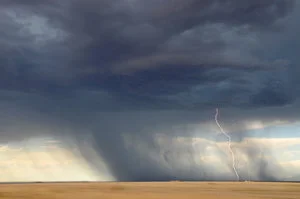The Letter of Jude is quite a read. It is one of the shortest books in the Bible—one chapter with twenty-eight verses—but verse for verse, it packs a punch.
All in Adversity
I’m Stuck!
The nuisance of being stuck in the mud on a country dirt road is frightening if a tow truck is not around the corner. Wheels spinning, dirt and smoke billowing contribute to frustration. Cell phone in hand—whew! Help is on the way.
Stand Firm
Last year was one of the most difficult years of my life while enduring ongoing and worsening health issues surrounding my beloved husband and brother. Several months before the medical journeys began, God led me to a Bible study on spiritual warfare. I tried to wiggle my way out of it, but my Savior knew I was on the threshold of experiencing new types of brokenness and vulnerability—new enemy territory.
Freed
In storms of life… fear escalates… becoming more intense.
When out of your element, in a storm, the enemy has an advantage… fear is a strong weapon.
Do you know what to do in that situation?
When You Feel All Alone
The fire of the LORD fell (18:38). The people proclaimed Yahweh, the self-existent and eternal God, Supreme* (18:39). And as surely as the LORD promised Elijah, the rains poured down (18:45) after three long years. It was evident that Baal had not begun and ended the drought. Surely God’s people would return to their senses.
When the Fire of the LORD Falls
The key to your story is the size of your God ladies. Oh, not that you can diminish God in any way. But how big is He in your eyes? Elijah had an inkling. You would too if God had hidden you by a brook and ordered ravens to feed you (17:4). And what if you then were witness to the daily multiplication of a widow’s meager supply of flour and oil to sustain all three of you (17:16), plus the miraculous return to life of her son (17:22)?
When the Brook Runs Dry
The drought continued in Elijah’s time. After all, God had said “neither dew nor rain in the next few years except at my word” (1 Kings 17:1). Eventually, the brook had to dry up. But who’d have thought God would send Elijah to a widow’s home for food, considering she was on her last bit of flour and oil.
When There is No Rain
A curveball: “something unexpected, surprising, or disruptive” (online Dictionary). Ever been thrown a curveball, ladies? How about a year of curveballs? Not entirely what I expected of 2021, especially after 2020.
Controlling Personalities
Controlling personality type people surely can prove difficult to deal with. Goliath, stood way taller than most men. As a bully, he refused to back down and exuded a misplaced confidence in himself.
How Then Can We Live…persevere in the will of God
The writer of Hebrews offers a not-so-gentle prod to these Judean Christians—you who believe and are saved are not to shrink back (10:39). Rather, remember those earlier days after you had received the light (10:32). Then, they had full assurance of faith (10:22), knowing they were able to enter the Most Holy Place by the blood of Jesus, by a new and living way (10:19-20) rather than by the Law. Then, they had hope (10:23) of their eternal reward. Then, they stood (their) ground in a great contest in the face of suffering (10:32). Now, their confidence is fading.
Best Advice
Who do we run to when a problem arises? Do we go to a trusted friend, our spouse or other family member, a neighbor? Often times when seeking answers, we do not exactly know where to turn.
The Lessons of Job: We May Never Know Why
The Lord’s speech out of the whirlwind is over. Only once has He stopped for a breath and Job dared to speak: “I am unworthy—how can I reply to you?” (40:4).
The Lessons of Job: Our God is Able!
Finally, God breaks His silence. But He doesn’t come walking in the garden in the cool of the day (Genesis 3:8) as He came to question Adam and Eve. Nor does He come in a gentle whisper as to Elijah on the mountain (1 King 19:12). He comes out of a storm, a literal whirlwind, not angry but overwhelming and intense, questioning, challenging.
The Lessons of Job: Don’t Be a “Foolish Woman” or a “Miserable Comforter”
Exit stage left Satan, off to do mischief somewhere else.
Job had indeed passed Satan’s tests without sinning (1:22; 2:10), but the suffering he continued to experience was surreal. His children had been crushed in a whirlwind (1:19), his livestock raided or burned by fire from the sky (1:15-17), his servants put to the sword (1:15,17), his skin afflicted with sores from head to toe (2:7).
The Lessons of Job: The Devil Can’t Make Me Do It
By reputation, Job’s character was exemplary: Job was honest inside and out, a man of his word, who was totally devoted to God and hated evil with a passion (1:1, MSG). There was “no one on earth like him” (1:8). Now that’s saying something.
The Lessons of Job: When Things Just aren’t Fair!
Ah, Job I thought as I contemplated the Womenary calendar last fall—not exactly the most uplifting book. Now wasn’t that just typical of 2020! But what better time than the present to consider the reality of suffering with all the ups and downs of that year and the February deep freeze of this. Let’s jump on into the deep end ladies, as suffering is indeed a deep subject.
Taking Offense
My five-year-old grandson did not appreciate me good heartedly teasing his baby brother about spitting up all over his bib. “That’s what bibs are for!” he scolded me indignantly. I tried not to giggle at him and thought it quite sweet for him to take up for his brother.
Up Close and Personal
My sister’s husband is a pilot. Years ago I went flying with him in a small plane. I remember flying over my house thinking how beautiful everything looked. The house sat on a well-manicured lawn, the trees looked perfectly shaped and small bursts of color came from the flowerbeds. It was a beautiful sight from on high. However, the reality was the lawn needed mowing, the trees had several dead limbs, and the flowerbeds were full of weeds. What appeared perfect from a distance was far from perfect up close.
People are Not Our Biggest Problem
Have I mentioned that I can’t read long passages without my eyes glazing over?
In fact, many times my eyes have glazed right over on just this one verse.
For instance, did you know that our struggle isn’t against people?
A Blessing in Disguise
After the flood, God commanded Noah and his sons to be fruitful and multiply; spread out over the earth and multiply on it (Genesis 9:7). In Genesis 10, the genealogy of Noah and his sons confirms they were successful in the job of multiplying.


















